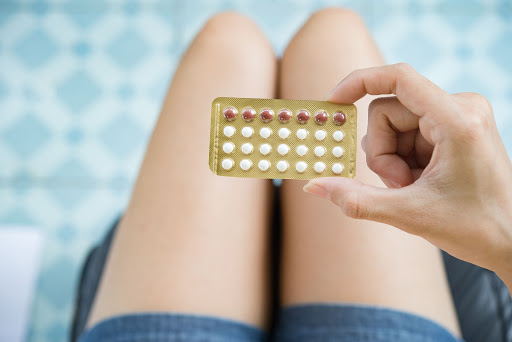Last Updated on: 5th December 2024, 01:06 pm
Table of Contents
ToggleBirth Control and Oral Health
A healthy mouth represents the general health and well-being of an individual. Every woman passes through various stages in a life, which involve changes in their hormonal level. Hormones not only influence your body changes, mood, emotions, and appetite but also have a huge impact on oral health. Although, various methods for birth control are available these days. However, birth control pills (oral contraceptive pills) are still a popular and successful method of contraception. Birth control pills mainly consist of estrogen and progesterone, either a combination or just progesterone.
Impact of hormonal changes on oral health

Women have an increased susceptibility to oral health issues during certain phases of life. The large fluctuations of estrogen and progesterone during puberty, birth control, pregnancy, or menopause are marked by increased blood flow to the oral tissues causing gum disease like symptoms such as swollen or bleeding gums. With these inflammatory changes and increased formation of plaque, the gum disease can go beyond infecting the underlying bone and periodontal tissues.
Birth control and oral health
Birth control pills or oral contraceptive pills act mainly by affecting ovulation altering the release of hormones in the body. The increased levels of estrogen and progesterone in the body lead to increased blood flow to your gums, making it more sensitive and susceptible to plaque formation. This can cause swollen, friable, and bleeding gums and if left untreated can lead to infection around the teeth, the underlying bone, and untimely tooth loss.

Several studies have demonstrated a clear connection between the changing hormonal levels with birth control pills and oral health problems in the past. With advancements and research, the levels of estrogen and progesterone in newer birth control pills are too low to cause an issue with your gums.
Other factors to consider

Although the risk for oral health problems with birth control pills has highly reduced there are some factors to consider for proper oral health care:
- Smoking: An association has been found between smoking and birth control pills. Women who smoke have an increased risk of blood clotting and infections in sockets after wisdom tooth extraction.
- Medications: Some medications can reduce the efficacy of birth control pills. It is always advised to discuss your medical history with your dentist before starting with any treatment.
- Time: The duration for which a woman uses hormone-based birth control methods imposes a significant effect on the risk of gum diseases.
Choosing the birth control method with minimal oral health implications is the right thing to do. Still, it is important to share your history with your dentist before going for any dental treatment. Following are some tips to maintain proper oral health while using birth control:
- Be regular with your dental check-ups and cleaning visits
- Brushing at least twice a day and flossing at least once a day
- Choose dental products wisely
- Practice balanced eating habits
Contact Us
If you have any questions about this or other topics, contact us at Channel Island Family Dental, as well as on our Facebook page. We are always attentive to your needs to make a timely diagnosis. In addition, our dentists in Oxnard, Santa Paula, Newbury Park Ventura, and Port Hueneme will guide you to the best treatment to give you back your best smile.



